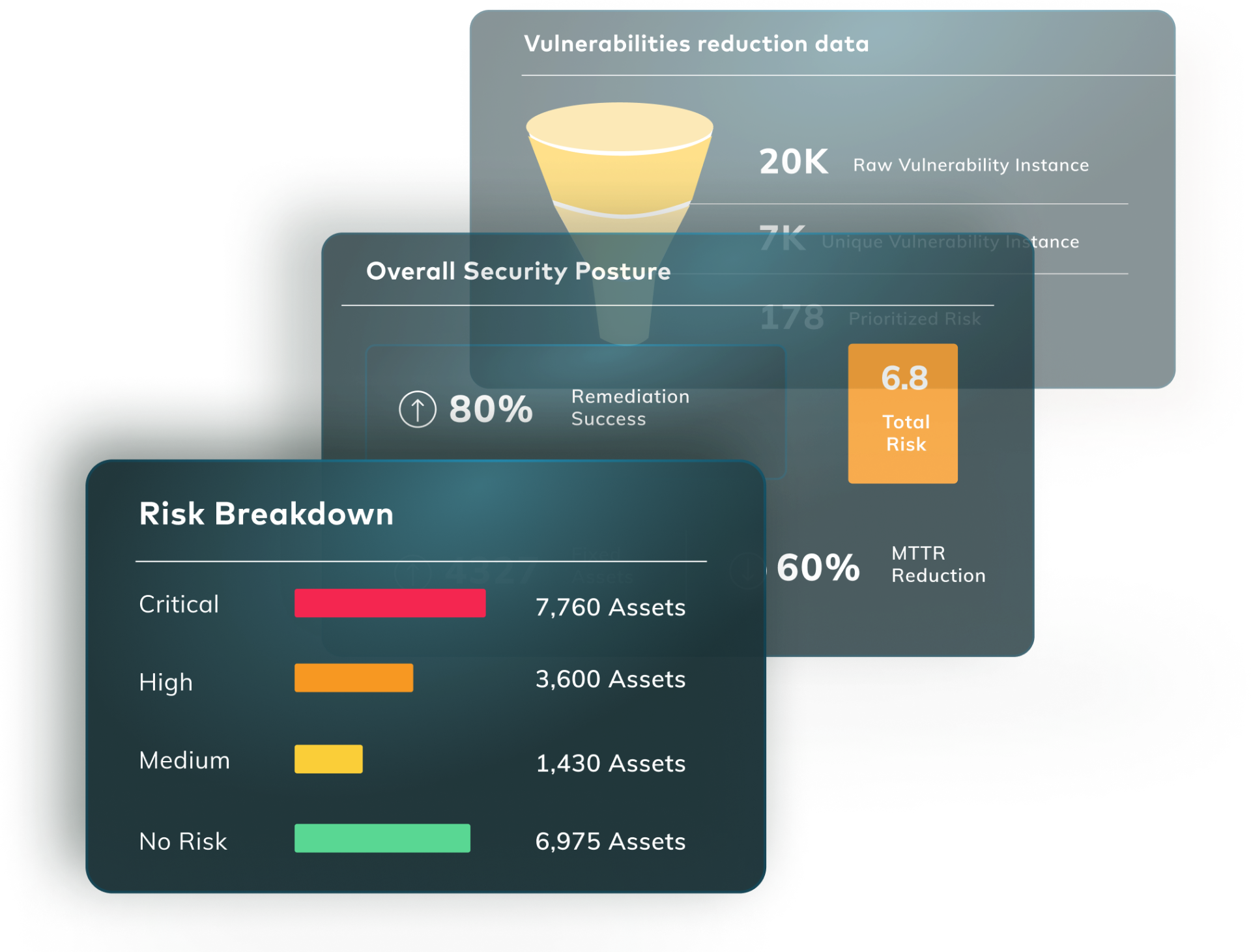When engaging with third parties, it’s important that you examine their cyber posture as well as your own. Huge tech companies like General Electric, Expedia, and Instagram have each experienced a 3rd party data breach in the last year due to improper relationships with unreliable third parties. In efforts to prevent a breach, enterprises should follow the below cyber hygiene practices to reduce the risk of software vulnerabilities.
Determine the business relationship and address risk accordingly:
- Third parties often do not have the same level of security as the parent corporation. When engaging in partnerships with outside companies, be sure to understand what each entity’s role is and who is responsible for addressing threats if they arise.
- With Vulcan Cyber, you can turn your scan data into a prioritized list of solutions, so your team knows exactly how to approach all vulnerabilities.
Remediate any cyber gaps:
- Businesses should update third-party software as soon as a patch is made available. This is necessary for all third parties, no matter how noncritical or minor they may seem. Keeping software up-to-date at all times can decrease the likelihood of a 3rd party data breach.
- Vulcan Cyber takes your data from scan to fix with full risk-based remediation. Take advantage of our orchestration tools so you don’t have to worry about partner integration risks.
Continuously monitor cyber posture:
- All components of the supply chain should be regularly examined for insecurities, including integrations. It is common for larger hacking organizations to exploit smaller third parties, which in turn implicates the parent company.
- Vulcan automation takes care of the behind-the-scenes work so your team can scale your workflows and become a fixing machine.
Third party risk management must be a top priority. The best way to protect against 3rd party data breaches is to take action. You can read about the best data breach responses at our blog. Learn more about how Vulcan Cyber can help secure your business now.









